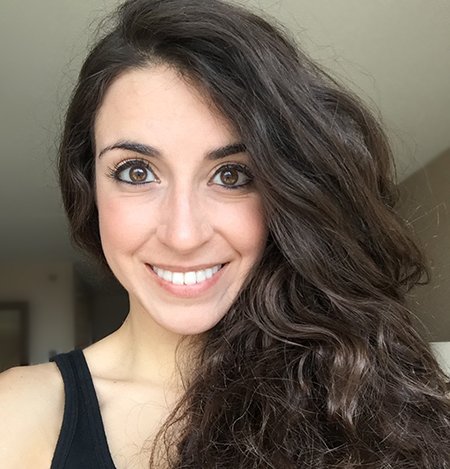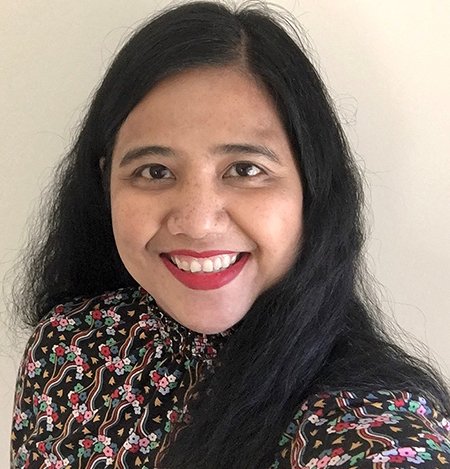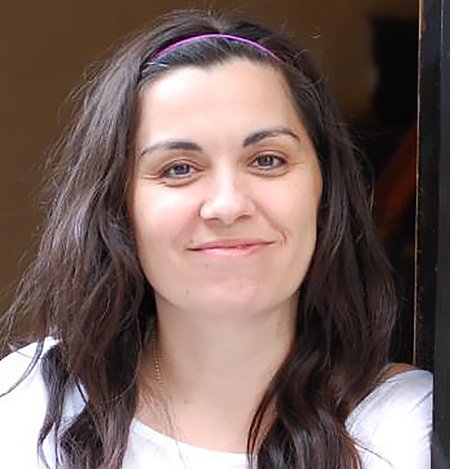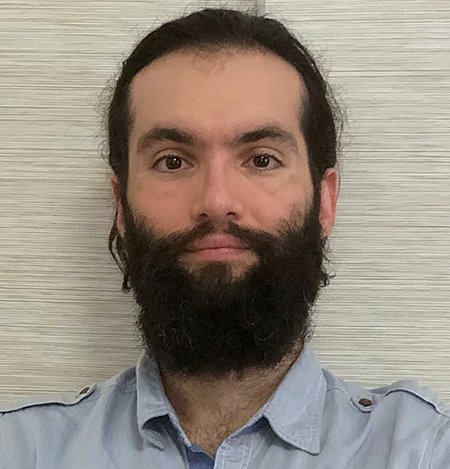Have you ever wondered who translates popular software, apps or their associated manuals, communication and documentation? Are the localizers linguists, technology aficionados or maybe robots?
The answer may surprise you.

My Story
A year ago, I left behind 13 years of language instruction and entered the magical realm of localization as a Greek Translation and Localization Specialist at Blueprint Technologies. All my working life, I had been giving my students (children, teenagers and adult professionals) tips and tricks on how to tackle the intricacies of various texts in English and Modern Greek, teaching them how to say things naturally. Now, I find myself sitting alone with a laptop, rewriting content ranging from UI text, articles and instructions to launch announcements, subtitles and marketing slogans into Greek to make my translation look and sound as if it had been originally written in my native language.
I have come to realize that my experience as a language instructor and my background in applied linguistics are my most powerful tools while navigating the land of technical jargon, marketing and creative content. Looking up words in dictionaries and corpora, researching, immersing myself in etymologies, grammar rules, literature, the press and social media — every text is a new sea of knowledge in which I have the privilege to swim.
Initially, I was a little apprehensive about the transition because I was setting out on a brand-new career path. But, that apprehension quickly dissolved and turned into curiosity: What did my co-workers do before their careers as Translation and Localization Specialists? Were their experiences in any way similar to my own? What other educational and professional backgrounds can unlock the gates to this land of linguistic wonders? I asked a few, and their stories are as inspiring as their backgrounds are varied.

A love for languages
Chananda Hutasangkas, a Thai Translation and Localization Specialist, knew she wanted to become a translator since 11th grade when she had to translate a short paragraph from an article in an English-language newspaper called “Student Weekly.” “I feel fortunate that here at Blueprint I get to do what I love, translation, daily. I am excited when I see English sentences for the first time because they are something unknown, and because at Blueprint, I always know they will be fun and interesting translations. I get to analyze and find the true meaning of these texts — sometimes it feels like I am a detective at work. The best, and maybe the most challenging, part comes when I get to choose the right words to convey the meaning into Thai. It is rewarding to know that the audience will not only understand the content, but also hear and feel the meaning and intention between the lines. Each translated sentence gives me a sense of accomplishment, and I am happy I get to do this every day.”
A love of words
Eirik Storesund, a Norwegian Translation and Localization Specialists, is a medievalist by academic training and specifically a philologist (literally a “lover of words”). How culture and concepts are expressed in words, has always been fascinating to him, and his specialization means he knows a lot of old ones. He brings a combination of linguistics, cultural history and literature studies to the team. “I studied Old Norse, which is the linguistic grandparent of the Scandinavian languages. One benefit here is that it provides a historical perspective to my own language and informs its cultural development. A misconception I often encountered at home was the idea that this is only good for understanding old stuff and therefore no longer useful. I love old stuff, obviously, but I like to think of philology as a toolkit for good, informed use of language more widely.”
“When localizing, we want the result, ideally, to seem as if it had been written in the target language — in a nutshell, we are often looking for transcreation, not simple translation. As an example, we try to avoid excessive use of loanwords; languages are richer than most people realize. Many Norwegian terms have fallen into disuse and obscurity because they were not considered culturally relevant for some time. Luckily, most people living in Norway today do not have to worry about “skirmishes,” for example, but the term is common in English fantasy settings. How could we translate that? Instead of simply borrowing the English term, as many might be tempted to do, Norwegians should actually use the cognate term skjærmyssel.”

The Thespian
Ece Eroglu, a Turkish Translation and Localization Specialist, has an immense love for books and studied Turkish language and literature. She was also a theater actress. Ece was teaching and acting when she received her first literary translation project for two plays by William Saroyan: “My Heart’s in the Highlands” and “The Time of Your Life.” She says it was a freeing experience because the author is an Armenian-American writer very dear to her heart. His works were especially important to her because of the heavy history between the Armenians and the Turks. “I wanted to be a part of that bridge between those two cultures. My relationship with that publishing house continued for some time, and I translated more Armenian writers into Turkish.”
“At Blueprint, I like trying to find the perfect expression for a speaker’s character in my language. This especially comes into play when I am subtitling because there are a lot of challenging constraints. I like that brain work. It is kind of like acting. When you act, you have to find ways to turn yourself into a character. You have to understand the character and transform the way you speak and your mannerisms.”
The scientist
Barbara Cozzari, an Italian Translation and Localization Specialist, has a degree in science but also studied Italian at university. She says it is the perfect combination because her scientific background provides a practical and rational approach that is ideal for problem-solving. “Every time we start using a new tool, or when I think a process could be improved, I ask myself and my colleagues how we might accomplish this. I form a hypothesis and set parameters I expect to reach with the new tool or the new process. Then I start testing this hypothesis. Once I have enough data, I decide whether we should adopt the new way or not. I take care to keep an open mind and, most importantly, I always try to think of things that might invalidate my idea. You can call me the devil’s advocate.”

Electronics background
Mirjan Zyba, a Greek Translation and Localization Specialist, has always been a tech enthusiast and studied electronic engineering. Leveraging his background in electronics, he started out in IT Support. Upon moving to the U.S., he was offered his first position in localization that required the combination of his technical expertise and his linguistic skills in Greek and he was hooked. The team quickly recognized his specialization and talents, promoting him to Localization Engineer only a few months after he had joined.
“Working in the Blueprint Localization team allows me to stay connected with my language and culture and keep up-to-date with all the developments in the tech industry.”
Cultural awareness
Marta Hakh, a Ukrainian Translation and Localization Specialist, studied international relations and worked as a freelance English-to-Ukrainian translator before joining Blueprint in August 2020. She says that delving into foreign languages, cultures and countries was an integral part of her training. After moving to the U.S., she realized being Ukrainian is her strongest skill. “As a native speaker, I am very cognizant of my country’s culture, history and trends in society. This knowledge, along with my linguistic skills, makes me a perfect fit for a career in localization because these spheres overlap.”
The list could go on and on. Our Localization team at Blueprint Technologies is a beautiful mosaic of talented translation and localization experts, who treat every piece of text not merely as words that need to be converted into different languages, but as content that pulls cultures closer together, allowing people all over the world to enjoy software in their native languages. When it comes to work, there is nothing more satisfying than cheerfully turning on your laptop in the morning, excited for what the day ahead holds, and knowing you are part of an amazing team. If you would like to learn more about what Blueprint Localization does, look here.

